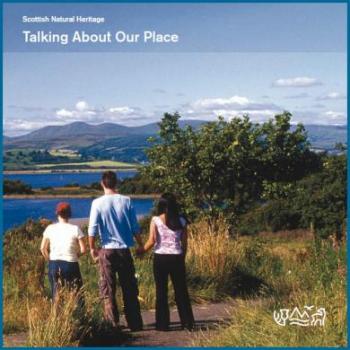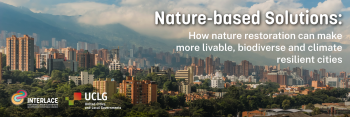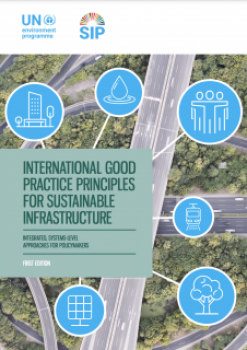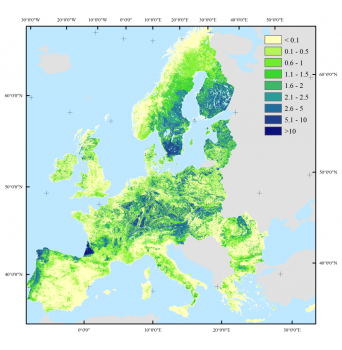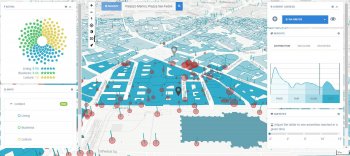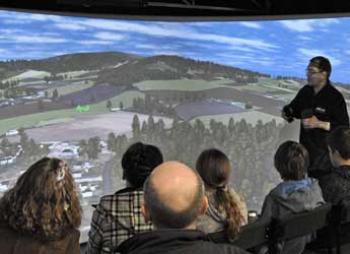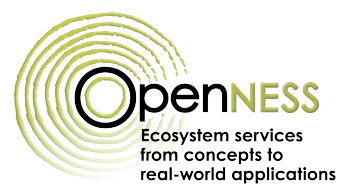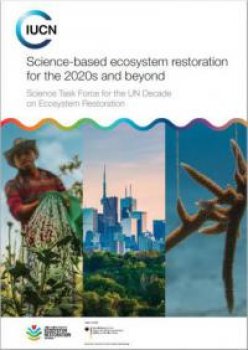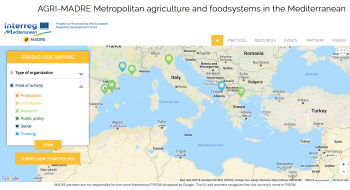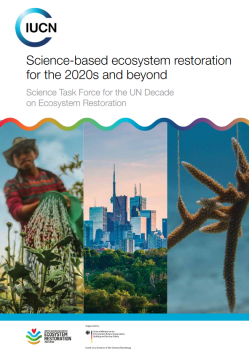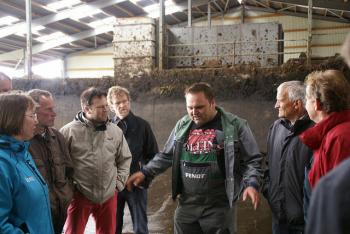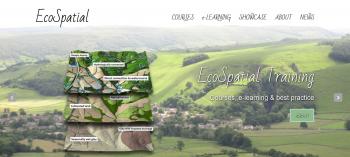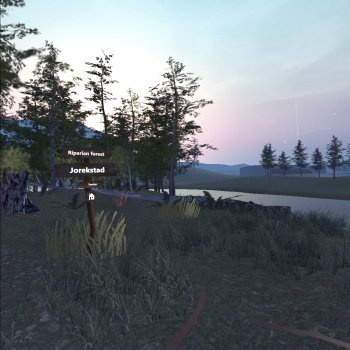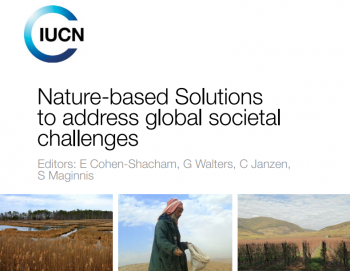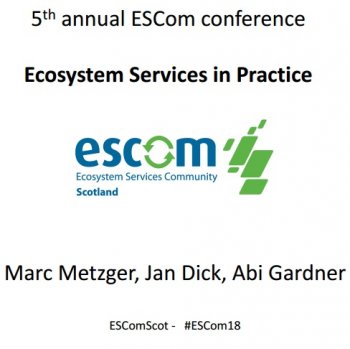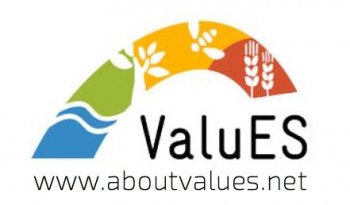Marketplace
Talking About Our Place
The Talking About Our Place toolkit help a community think about some of the issues their place may be facing, and encourages them to get involved. It will help people: explore what makes their place special recognise what benefits their place provides for identify what issues affect their place or
INTERLACE MOOC on Nature-based Solutions: (7) POLICY INSTRUMENTS for mainstreaming NbS in urban governance processes
Urban areas across the globe are facing unprecedented challenges—pollution, climate change, urban sprawl—and traditional solutions are falling short. The INTERLACE project’s Massive Open Online Course showcases how nature-based solutions offer a promising approach to help create resilient,
International Good Practice Principles for Sustainable Infrastructure
This report sets out ten guiding principles that policymakers can follow to help integrate sustainability into infrastructure planning and delivery. They are focused on integrated approaches and systems-level interventions that governments can make to create an enabling environment for sustainable
Wood production maps for European forests
The European Forest Institute, in cooperation with Humboldt-Universitat zu Berlin and VU University Amsterdam, developed a set of high-resolution wood production maps for European forests. The maps contain predicted volumes of wood production, based on statistics collected for 29 European countries
Nature4Cities - Diagnostic of your city's trends with Colouree and/or Greencity
Do you work for a council, as policy-maker or in urban or green spaces planning? Colouree and Greencity will help you set up an exhaustive and ongoing monitoring system to (i) identify the best place for your NbS projects, (ii) support data-driven and collective decision-making and (iii) monitor
Virtual Landscape Theatre
The Virtual Landscape Theatre (VLT) is a mobile curved screen projection facility, in which people can be 'immersed' in computer models of their environment to explore landscapes of the past, present and future. This facility is the first mobile unit of its kind in the UK, and is used for
OpenNESS Synthesis paper: Ecosystem services: a gender perspective
The issue of gender and sustainability has mainly been approached from two different perspectives: the different role of women and men in contributing to sustainable pathways and the differential impacts of environmental degradation on women and men. Both are highly interconnected as the adaptation
Science-based ecosystem restoration for the 2020s and beyond
The documenti presents recommendations of the Science Task Force (STF) of the UN Decade for Ecosystem Restoration, led by the International Union for Conservation of Nature (IUCN) and comprised of leading subject experts as specific actions to be undertaken by public and private stakeholders to
AGRI-MADRE Platform: Interactive stakeholder map
This platform, based on the MADRE project (Metropolitan Agriculture for Developing an innovative, sustainable and Responsible Economy), aims to connect the actors involved in metropolitan agriculture and food systems in the Mediterranean. Dozens of innovative projects have been compiled around this
Science-based ecosystem restoration for the 2020s and beyond: Science Task Force for the UN Decade on Ecosystem Restoration
To move the goals of the UN Decade on Ecosystem Restoration forward, the Science Task Force of the Decade presents this think piece, which addresses four fundamental questions, presents five key messages to bring effective and long-term action, and provides recommendations on how
- Document
Creation of clonal seed orchards for the conservation of Douglas-fir germplasm
Genetic conservation and the production of high-quality locally-adapted propagation material are very important for Douglas fir, especially in the current context of climate change.
Nature-Based Entrepreneurship: City Strategies & Recommendations
Nature-based entrepreneurship is a core element of the Connecting Nature Framework and supports the planning, delivery, and stewardship of large-scale nature-based solutions in cities. As the field of nature-based enterprises (NBE) and entrepreneurship is still novel, the Connecting Nature strategy
- Slides
- Video
NetworkNature Annual Event 2021 - Presentations & Recordings
NetworkNature held its first Annual Event on 21st October 2021, on achieving the EU Green Deal through Nature-based Solutions. The Event was organised by IUCN in cooperation with the NetworkNature's partners. Find the presentations from the opening and the closing plenary sessions and the
WOCAT Approach for Social Innovation for sustained soil organic matter, clean drinking water and sustainable dairy farming in East-Netherlands
The WOCAT Approach describes a process of social innovation in a region with dairy farming in the eastern Netherlands, driven by a foundation of farmers and inhabitants. The objectives of the region are sustainable dairy farming, which is resilient to climate change and able to reduce GHG emissions
GIS Training & EcoSpatial E-learning
To meet the growing demand for subject-specific and relevant GIS training courses Westcountry Rivers Trust have developed a series of intensive GIS short-courses specifically tailored to develop and disseminate best practice and technical GIS skills in the use of GIS, in practitioners engaged in
PhusicosVR - NbS demonstrators in Virtual Reality
The H2020 project PHUSICOS focused on demonstration sites for NbS implementations to reduce hydrometrological risks in rural environments. These implementations are difficult enough to envision for professionals familiar with them, such as landscape architects and infrastructure engineers, but for
Nature-based Solutions to address global societal challenges
This report has been prepared as part of an effort by IUCN to define its position on Nature-based Solutions (NbS) and plan for future work to advance this concept and support effective implementation of NbS to enhance ecosystem services provision and address societal challenges. The report proposes
- Guidance
- Report
Guidelines for the calculation of Life Cycle Costs of NbS. Costs of infrastructures: elements of method for their estimation.
In this guidance report we tailor the general LCC methodology for the specificities of NBS and produce a general guideline for demo cases to calculate in a standardized way the TCO of NBS which could be then integrated in the cost-benefit analysis. Life cycle costs (LCC) are also named Total Cost
ESCom's 5th Annual Conference Presentations
A compilation of ESCom's 5th annual conference presentations on the theme of Ecosystem Services in Practice held on the 18/6/18. This product show cases some of the research and projects currently conducted in the Scotland regarding ecosystem services and natural capital in practice.
GIZ ValuES - Paper on Increasing the Policy Impact of Ecosystem Service Assessments and Valuations - Insights from Practice
This report gives an overview about requirements and options for enhancing the practical usefulness and political relevance of ecosystem service assessments and valuations (ESAVs). It focuses on practical aspects of the ESAV process: How can potential users of ecosystem service knowledge draw
- ‹ previous
- 8 of 55
- next ›

